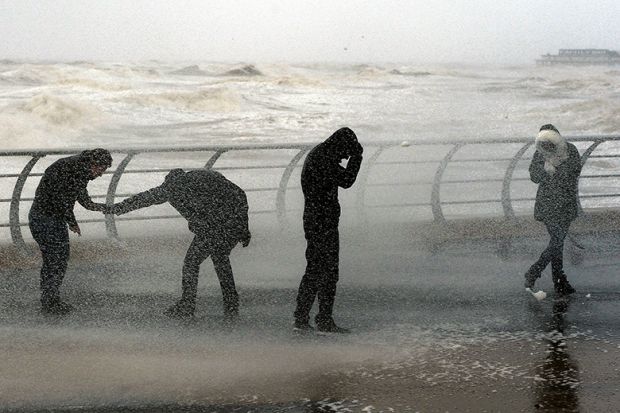As the coronavirus crisis has spiralled, turning into an all-consuming cyclone, we have had to get used to a daily battering and adapt as the world changes around us.
But the decision last week to close UK schools and summarily cancel examinations still came as a startling blow – and one that is being replicated in many other parts of the world.
Whether for the students themselves, who are losing a formative rite of passage, for educators, or for working parents, the implications of this intervention are extreme.
The landscape we now survey is strewn with questions without any easy solutions.
In our news pages, we address some of the most pressing issues for universities, from the fallout of the decision to cancel A levels (and the pitfalls to avoid as solutions are sought), to the difficulties being faced by international students left stranded as universities and borders close down.
The likely decline in the number of international students next year will mean that domestic students will be in greater demand than ever, raising the question for some of whether student number controls might have to be reintroduced to manage the health of the system. But others, including Nick Hillman, director of the Higher Education Policy Institute, have argued that such a restriction would be a mistake – and would in effect “pile more pain on this unlucky generation of 18-year-olds, who are already halfway through the university application process”.
Another big question is how offers of places will be made on the basis of predicted A-level grades, and in our news pages we report on warnings of the inequality that could be sown if we rely uncritically on those grades.
In a series of Twitter posts, Jo Johnson, the former universities and science minister, pointed out that last year 90 per cent of the UK’s domestic applicants did get an offer from one of their university choices, and for three-quarters that was their first-choice university.
“This year, for the sad reason that there is likely to be a fall-off in international students, there’s no doubt the percentage of domestic UK students accepted to their first choice university will be higher,” he added.
For Johnson, who as minister championed the international nature of the UK’s higher education sector and fought in particular to ease visa restrictions on post-study work, this is also a moment “to reflect how profoundly international students matter, and the many ways we will miss them”.
With almost half a million coming to the UK each year, he said, they make an enormous economic contribution to towns across the country, and “critically, they make financially viable courses that would otherwise not be offered and thereby increase choice for domestic UK students”.
The way in which the UK handles the coming period, and the challenges that international students are facing (including, shamefully, racism relating to the origins of the coronavirus in China), will “shape perceptions of the UK for years to come”, he points out.
Our coverage this week also picks up on a range of other issues that universities and their staff are grappling with during this unprecedented and extended period of disruption.
In our opinion pages, we have practical advice about how to cope with the new online, remote world of work, which we all now inhabit.
In our news pages, meanwhile, we consider the risk to the financial viability of some universities (and what the regulators might do about it), and we look in detail at how researchers, and research data in particular, are helping governments to design and implement strategies to contain the spread of the virus and keep serious illness to a minimum.
What is abundantly clear is that this storm is not over, and it’s impossible at this stage to say how long it will continue to wreak havoc on our lives. But the crucial role that universities are playing in the world’s response is equally plain to see.
Register to continue
Why register?
- Registration is free and only takes a moment
- Once registered, you can read 3 articles a month
- Sign up for our newsletter
Subscribe
Or subscribe for unlimited access to:
- Unlimited access to news, views, insights & reviews
- Digital editions
- Digital access to THE’s university and college rankings analysis
Already registered or a current subscriber? Login




